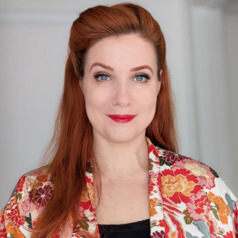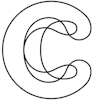|
|
|
|
“Every single one of us matters, every single one of us has a role to play, and every single one of us makes a difference every single day.”
These are the words of Jane Goodall, a name that barely needs introduction. Last week, the legendary conservationist and primate researcher passed away at the age of 91, leaving a profound legacy.
The only person believed to have been accepted into chimp society, she single-handedly sparked a change in humanity’s understanding of great apes – our closest animal cousins. The environmental protection organisation she founded spans five continents, with people looking after their local communities in 75 countries.
At a time when many of us feel more disconnected from nature than ever before, the best way to honour Goodall’s legacy is to remember – we’re all in this together.
Until next week,
|

|
Signe Dean
Science + Technology Editor
|
|

Euan Ritchie, Deakin University; Kylie Soanes, The University of Melbourne; Marissa Parrott, The University of Melbourne; Vanessa Pirotta, Macquarie University; Zara Bending, Macquarie University
Jane Goodall showed tremendous courage in charting her own course as a pioneering researcher – and working to spread hope wherever she went.
|

Maria Guagnin, University of Sydney; Max Planck Institute of Geoanthropology; Ceri Shipton, UCL; Frans van Buchem; Michael Petraglia, Griffith University
The large, naturalistic engravings are a striking symbol for survival in the desert.
|

Laura McKemmish, UNSW Sydney
A failed star just taught us something new about the search for alien life.
|

William Feeney, Griffith University; Estación Biológica de Doñana (EBD-CSIC); James Kennerley, Cornell University; Niki Teunissen, Monash University
The findings of a new study about communication between birds also offer key insights into the origins of language.
|

Aimee Pugh Bernard, University of Colorado Anschutz Medical Campus
Regulatory T cells help your immune system distinguish between ‘self’ and ‘nonself’ – and can open doors to better treatments for cancer, autoimmune disease and transplant rejection.
|
Our most-read science articles this week
|

Ian Towle, Monash University; Luca Fiorenza, Monash University
A new discovery could reshape how we interpret the fossil record of humans and their closest relatives.
| |

Guido Carim Junior, Griffith University
In-flight technical problems are part of flying – and the crews are extremely well prepared for them.
|

Mandy Hagstrom, UNSW Sydney
Some swear exercising before breaking your fast is the most efficient way to lose body fat. But what’s the research say? And what about ‘fasted’ strength training?
| |

Marnie Shaw, Australian National University; Laura Jones, Australian National University
It doesn’t sound big. But this humble new set of rules will make it possible for many Australian households to export a lot more solar – and help the power grid .
|
|
|
More of this week's coverage
|
-
Sheila Skeaff, University of Otago
Most New Zealand adults consume more protein than the recommended amount. They could reduce meat without risking inadequate protein intake.
-
Tristan Moss, UNSW Sydney; Kathryn Robison, University of Sydney
Every single day, space technology impacts our lives. But a new report reveals gaps between what Australians think and what they know about space.
-
T.J. Thomson, RMIT University; Daniel Pfurtscheller, University of Innsbruck; Katharina Christ, National Institute for Science Communication; Katharina Lobinger, Università della Svizzera italiana; Nataliia Laba, University of Groningen
Generative AI changes how we see – and how we decide what’s real.
-
Taylor Hardwick, University of Sydney; Ben Egliston, University of Sydney; Leon Xiao, City University of Hong Kong; Marcus Carter, University of Sydney; Tianyi Zhangshao, University of Sydney
Games with ‘loot boxes’ should be classified for over-15s – but a new study shows many of the most popular mobile games completely ignore the rules.
-
Kate Trinajstic, Curtin University; John Long, Flinders University; Vincent Dupret, Uppsala University
A new study of ancient, extinct fish known as placoderms provides another piece of the evolutionary puzzle about our deep time, aquatic ancestors.
-
Michele Governale, Te Herenga Waka — Victoria University of Wellington; Ulrich Zuelicke, Te Herenga Waka — Victoria University of Wellington
Science fiction sometimes uses quantum concepts to make the impossible seem plausible. But real-world developments will likely have profound societal implications.
-
Rochelle Wynne, Deakin University; Forbes McGain, The University of Melbourne; Stacey Matthews, Deakin University
Health care is responsible for up to 7% of Australia’s greenhouse gas emissions. Reducing the use of disposable products could reduce this footprint.
|
|
| |
|
|
|
The Conversation AU/NZ
Melbourne Victoria, Australia
•
Full Time
|

|
|
|
|
Featured Events, Courses & Podcasts
|
View all
|
|
|
|

|
22 October 2025
•
Carlton
|

|
10 October 2025
•
Canberra
|

|
16 - 17 October 2025
•
Canberra, ACT, Australia
|

|
|
|
|
| |
| |
| |
| |
| |
|
|
|
|
|
|
|